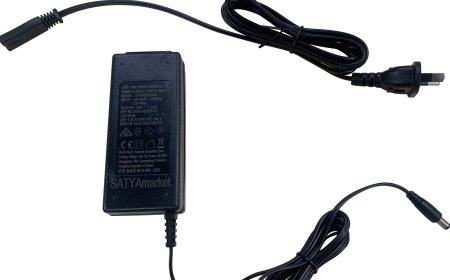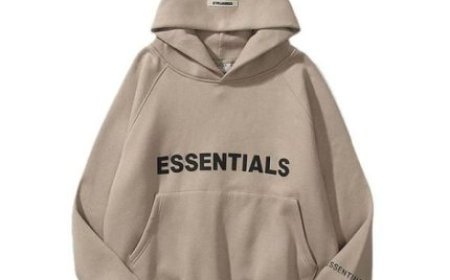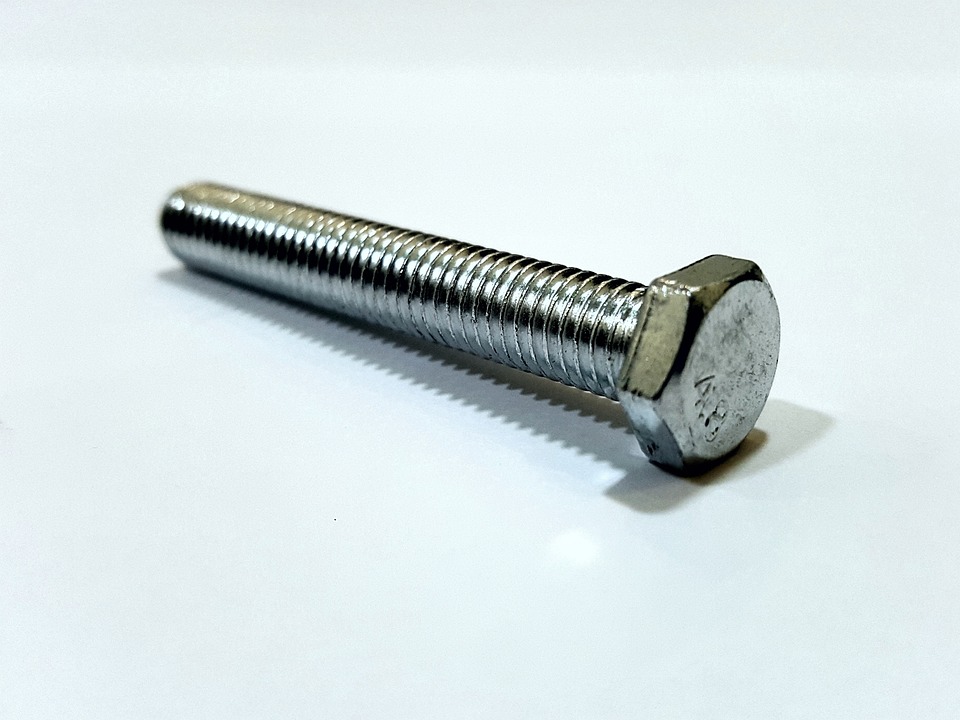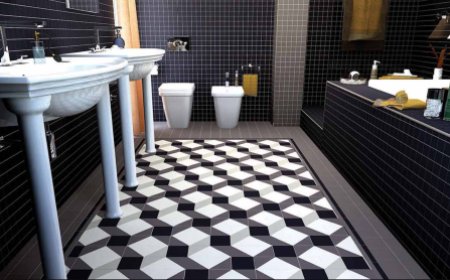Top 10 New Orleans Spots for Vintage Fashion
Introduction New Orleans is a city where history breathes through every cobblestone street, every jazz note, and every thread of fabric worn with pride. Its unique cultural tapestry has long inspired fashion—blending Creole elegance, Mardi Gras extravagance, and Southern charm into a style all its own. Nowhere is this more evident than in the city’s thriving vintage fashion scene. From meticulousl
Introduction
New Orleans is a city where history breathes through every cobblestone street, every jazz note, and every thread of fabric worn with pride. Its unique cultural tapestry has long inspired fashionblending Creole elegance, Mardi Gras extravagance, and Southern charm into a style all its own. Nowhere is this more evident than in the citys thriving vintage fashion scene. From meticulously preserved 1940s flapper dresses to bold 1970s disco silhouettes and rare 1990s streetwear, New Orleans offers some of the most authentic and curated vintage finds in the South.
But in a market flooded with fast fashion replicas and poorly sourced secondhand goods, trust becomes the most valuable currency. When you invest in vintage, youre not just buying a garmentyoure preserving a story, supporting ethical consumption, and connecting with a legacy of craftsmanship. Thats why knowing where to shop matters. Not every thrift store is a treasure trove. Not every vintage booth is curated with care. This guide highlights the top 10 New Orleans spots for vintage fashion you can trusteach vetted for authenticity, quality, provenance, and ethical sourcing.
These arent just shops. Theyre institutions. Theyre run by collectors, historians, and fashion enthusiasts who treat every piece like a relic. Whether youre a lifelong collector, a first-time vintage buyer, or someone seeking to build a wardrobe that stands apart from the mass-produced, this list will guide you to the most reliable, inspiring, and beautifully curated destinations in the city.
Why Trust Matters
Buying vintage isnt just about aestheticsits about integrity. Unlike fast fashion, which churns out disposable clothing with little regard for labor or environmental impact, vintage fashion carries the weight of time, craftsmanship, and individuality. But that very value also makes it vulnerable to exploitation. Unscrupulous sellers may mislabel modern reproductions as authentic, overprice damaged items, or source garments from unethical channels.
Trust in vintage fashion means knowing the origin of what youre buying. It means understanding whether a 1960s silk blouse was hand-sewn in New York or mass-produced in a factory decades later. It means knowing if a pair of 1980s Levis has been properly cleaned and preservedor if its been chemically bleached to hide stains. Trust means confidence that the seller cares as much about the garments history as you do about wearing it.
In New Orleans, where tourism drives demand and the allure of antique items is high, the line between authentic and inauthentic can blur. Thats why the shops on this list have been selected not just for their inventory, but for their reputation, transparency, and commitment to quality. Each vendor has been evaluated based on:
- Proven track record of sourcing authentic vintage (not modern reproductions)
- Clear labeling of era, material, and condition
- Restoration practices that preserve original integrity
- Customer consistency and community reputation
- Knowledgeable staff who can speak to garment history
When you shop at these locations, youre not just purchasing clothingyoure participating in a culture of preservation. Youre supporting small businesses that honor the past while building a sustainable future. And in a city as rich in heritage as New Orleans, that connection matters more than ever.
Top 10 New Orleans Spots for Vintage Fashion
1. The Vintage Revival
Nestled in the heart of the French Quarter, The Vintage Revival has become a pilgrimage site for collectors seeking mid-century elegance. Founded in 2008 by a former costume designer for the New Orleans Opera, the shop specializes in 1920s through 1970s womenswear, with a particular strength in silk evening gowns, tailored suits, and rare designer pieces from the likes of Dior, Balenciaga, and Halston.
What sets The Vintage Revival apart is its meticulous cataloging system. Each garment is tagged with its decade, fabric composition, original owner (when known), and condition notes. The shop maintains a digital archive accessible via QR code on each item, allowing customers to view historical photos, provenance documents, and even restoration records. Their restoration team uses period-appropriate techniquesno synthetic dyes, no machine washingand every piece is steam-cleaned with ozone technology to eliminate odors without chemicals.
Regular clients include film costume designers, museum curators, and fashion students from Tulane University. The shop also hosts monthly Era Evenings, where patrons can try on pieces from a specific decade with curated music and lighting to recreate the ambiance. Its not just shoppingits time travel.
2. Bayou Threads
Located in the Marigny neighborhood, Bayou Threads is a family-run boutique that has been sourcing Louisiana-made and Louisiana-worn vintage since 1995. The owners, siblings from a long line of seamstresses and tailors, focus on garments with regional significance: Mardi Gras costumes from the 1950s, Creole wedding gowns from the 1930s, and workwear from the Gulf Coast fishing communities.
Unlike many vintage shops that prioritize aesthetics over authenticity, Bayou Threads celebrates the stories behind the stitches. A 1948 cotton dress might be marked not just as 1940s, but as worn by a sugarcane worker in St. James Parish, hand-sewn by her mother. Their inventory includes over 200 documented items with oral histories recorded and archived in partnership with the Louisiana Folklife Center.
They rarely stock high-end designer labels, instead focusing on the quiet dignity of everyday fashion. Their pricing reflects this ethosaffordable, fair, and never inflated for tourism. Bayou Threads also offers free repair services for items purchased from them, ensuring that garments live on for generations. Its vintage fashion with soul, rooted in community.
3. The Attic Archive
Perched above a jazz club on Royal Street, The Attic Archive feels less like a store and more like a curated museum. Its founder, a retired archivist from the Historic New Orleans Collection, began collecting vintage garments after discovering a trunk of 1910s clothing in a Canal Street attic. What started as a personal project evolved into one of the most respected vintage destinations in the city.
The shop is divided into decades, with each section displaying garments under glass lighting and climate control. Items are arranged chronologically, with accompanying placards detailing fabric technology of the era, popular silhouettes, and societal influences. A 1922 lace-trimmed blouse, for example, comes with a note explaining how the introduction of synthetic dyes changed womens fashion post-WWI.
Every piece is sourced from estate sales, family donations, or verified private collections. The Attic Archive does not accept items from flea markets or unknown resellers. Their return policy is strictno returns on vintagebut they offer detailed condition reports and allow customers to schedule private viewings with the curator. For serious collectors, this is the gold standard.
4. Gumbo & Gowns
True to its name, Gumbo & Gowns blends New Orleans culinary identity with its sartorial heritage. Located in the Bywater, this bright, colorful boutique specializes in 1950s1990s fashion with a playful, eclectic energy. Think sequined cocktail dresses from the heyday of Storyville jazz clubs, bold 1980s power suits, and 1990s hip-hop streetwear with local graffiti labels.
What makes Gumbo & Gowns trustworthy is its rigorous vetting process. Every item is inspected by a team of three fashion historians and two textile conservators. They test for fading, shrinkage, and synthetic blends that mimic vintage materials. They also cross-reference labels with the Vintage Fashion Guilds database to confirm authenticity.
Theyre known for their Gumbo Box programcustomers can pay a flat fee to receive a curated box of five random vintage pieces, each with a handwritten note explaining its origin. Its a gamble, but one backed by expertise. Many repeat customers say theyve found their signature pieces here, including a 1978 Yves Saint Laurent tuxedo jacket and a 1993 New Orleans Saints jersey with original team embroidery.
5. The Mardi Gras Museum of Costumes
Though primarily known as a museum, the Mardi Gras Museum of Costumes operates a retail gallery open to the public on weekends. Its the only place in New Orleans where you can buy authentic, wearable Mardi Gras costumes directly from the krewes themselves. The inventory includes pieces from the 1940s to the 1990sbeaded masks, feathered capes, and hand-sewn parade ensembles that were worn during actual parades.
Each item comes with a certificate of provenance, signed by the krewes historian, detailing the year, parade theme, and wearer (if known). Many of these pieces were donated by krewe members after retirement and have never been cleaned or altered. The museums conservation team carefully stabilizes them for wearability without compromising historical value.
For collectors of parade culture, this is an unparalleled resource. A 1967 Rex costume with original sequins and silk taffeta can be found here, along with matching scepters and gloves. Prices reflect rarity and condition, but the authenticity is beyond reproach. This isnt costume shop fareits wearable history.
6. Retro Rook
Specializing in menswear from the 1920s to the 1980s, Retro Rook is a haven for men seeking timeless style with character. Located in the Garden District, the shop is run by a former tailor who apprenticed under a 1950s Savile Row-trained craftsman. Their inventory includes hand-tailored suits, vintage ties, pocket squares, leather boots, and rare military uniforms from WWII-era New Orleans regiments.
What sets Retro Rook apart is its focus on fit. Every suit is pressed, lightly altered (if needed), and fitted by hand to ensure it flatters modern body types without losing original structure. They offer complimentary consultations to help customers match vintage pieces with contemporary wardrobes. Their Sartorial Story cardssmall booklets included with each suitdetail the original owners profession, lifestyle, and even favorite jazz records.
The shop also hosts quarterly Suits & Spirits events, where patrons can try on vintage blazers while sipping bourbon and listening to live jazz. Retro Rook has been featured in GQ and Esquire for its commitment to preserving masculine elegance in an age of fast fashion.
7. The French Market Vintage Collective
Located in the historic French Market, this is not a single store but a curated collective of five independent vintage vendors, each handpicked by a committee of local fashion historians. The collective operates under strict guidelines: no reproductions, no synthetic blends masquerading as natural fibers, and no items from overseas fast-fashion recycling streams.
Each vendor specializes in a niche: one focuses on 1950s childrens clothing, another on 1970s denim, another on 1960s military surplus. All items are tagged with a collective stamp and a unique ID number traceable to the original seller. The collective also maintains a shared database of repair histories and material analyses.
Visitors can walk through the entire collective in under an hour and find everything from a 1940s lace-trimmed christening gown to a 1985 New Orleans Jazz & Heritage Festival tee. The collectives transparency and accountability make it one of the most reliable places in the city to browse without fear of deception.
8. Cane & Lace
Specializing in Southern womens fashion from the 1890s to the 1970s, Cane & Lace is a quiet gem in the Trem neighborhood. The shop is named after the cane walking sticks and lace parasols once carried by New Orleans elite women. Its collection includes Victorian corsets, 1920s beaded cloaks, 1940s wartime utility dresses, and 1960s tea-length skirts.
Every garment is sourced from Southern estates, with a focus on pieces worn by local families over generations. The owner, a descendant of a Creole seamstress, personally interviews sellers to verify the history of each item. She refuses to sell anything that cannot be traced to a Louisiana origin.
What makes Cane & Lace exceptional is its attention to detail. A 1930s dress might be accompanied by a small envelope containing the original care instructions, written in cursive on tissue paper. The shop also offers Lace & Legacy workshops, where visitors can learn to mend vintage lace using traditional needlework techniques.
9. The Jazz Age Emporium
Located in the Faubourg Marigny, The Jazz Age Emporium is a sensory experience. The shop is decorated like a 1920s speakeasy, with velvet drapes, brass lamps, and a phonograph playing vintage jazz. Its inventory focuses exclusively on 19151940 fashion, with an emphasis on flapper dresses, cloche hats, fur stoles, and Art Deco jewelry.
The owner, a former jazz historian, sources items from private collections across the Gulf Coast. Each piece is authenticated using fabric analysis, button materials, and stitching patterns unique to the era. They use a 1920s-era sewing machine to make repairs, ensuring that any alterations are invisible and historically accurate.
The Emporium also offers Dress the Decade appointments, where customers can be fitted for a full 1920s ensembleincluding undergarments, stockings, and shoesand photographed in vintage studio lighting. Its become a popular choice for engagement photos and themed weddings. The attention to period accuracy is unmatched.
10. The Green Thread
At the intersection of sustainability and vintage fashion, The Green Thread is New Orleans first carbon-neutral vintage boutique. Located in the Mid-City neighborhood, it specializes in pre-1980s garments that have been cleaned using plant-based solvents, repaired with organic cotton thread, and stored in recycled paper packaging.
The shops mission is to prove that vintage fashion can be both ethical and luxurious. They partner with local textile recyclers to repurpose damaged garments into new accessoriesscarves from old dresses, patches from torn jackets. Their inventory includes pieces from iconic American brands like Levis, Pendleton, and Columbia Sportswear, all sourced from Louisiana estates.
Each item is assigned an environmental impact score, showing how much water, energy, and CO2 were saved by choosing vintage over new. A 1972 denim jacket, for example, might show Saved 2,700 gallons of water and 12 kg of CO2. The Green Thread also donates 10% of profits to Louisiana-based textile preservation nonprofits. For the conscious consumer, this is the future of vintage.
Comparison Table
| Shop Name | Specialization | Authenticity Verification | Restoration Practices | Provenance Documentation | Price Range |
|---|---|---|---|---|---|
| The Vintage Revival | 1920s1970s womenswear, designer labels | Digital archive with provenance records | Ozone steam cleaning, period-appropriate repairs | Yes, with historical photos and owner notes | $80$1,200 |
| Bayou Threads | Regional Louisiana wear, workwear, Creole fashion | Oral histories + family documentation | Hand-stitched repairs, no chemical treatments | Yes, archived with Louisiana Folklife Center | $25$200 |
| The Attic Archive | 1900s1970s, museum-grade pieces | Exclusively estate-sourced, no flea market items | Climate-controlled storage, no alterations | Extensive, with curator-signed certificates | $150$2,500 |
| Gumbo & Gowns | 1950s1990s eclectic, pop culture | Textile conservators + Vintage Fashion Guild cross-check | Professional cleaning, minimal alteration | Yes, with handwritten origin notes | $40$600 |
| The Mardi Gras Museum of Costumes | Authentic parade costumes, krewe-worn | Official krewe historian certification | Conservation-grade stabilization | Yes, signed certificates with parade details | $200$3,000 |
| Retro Rook | 1920s1980s menswear, tailored suits | Authenticity verified by former Savile Row tailor | Hand-fitted, no synthetic alterations | Yes, with Sartorial Story booklets | $120$1,800 |
| The French Market Vintage Collective | Multi-vendor, diverse decades | Collective certification + traceable ID system | Vendor-specific, all meet strict standards | Yes, shared database with repair history | $15$500 |
| Cane & Lace | 1890s1970s Southern womens fashion | Family lineage verification | Traditional needlework, no modern techniques | Yes, with original care instructions | $50$800 |
| The Jazz Age Emporium | 19151940, flapper and Art Deco | Button/fabric analysis, era-specific stitching | 1920s sewing machine repairs | Yes, with historical context cards | $90$1,500 |
| The Green Thread | Pre-1980s, eco-conscious, sustainable | Material testing + origin tracing | Plant-based cleaning, organic thread repairs | Yes, with environmental impact scores | $30$400 |
FAQs
How do I know if a vintage item is truly authentic and not a modern reproduction?
Authentic vintage items typically have hand-stitched seams, natural fibers (cotton, wool, silk), and labels with outdated logos or manufacturing codes. Reproductions often use synthetic blends, machine stitching, and modern tag fonts. Trusted shops will provide fabric analysis, era-specific details, and provenance documentation. When in doubt, ask for the items historyreputable sellers can describe its origin, condition, and restoration.
Can I return vintage clothing if it doesnt fit?
Most authentic vintage shops do not accept returns due to the one-of-a-kind nature of their inventory. However, trusted stores often offer complimentary alterations, detailed size charts, and try-on appointments. Always ask about their fit policies before purchasing. Some, like Retro Rook and The Vintage Revival, provide free minor adjustments to ensure comfort without compromising the garments integrity.
Is vintage clothing hygienic to wear?
Yeswhen properly cleaned. Reputable vintage shops use ozone sterilization, steam cleaning, or plant-based solvents to remove odors and bacteria without damaging fabric. Avoid items that smell strongly of mothballs or mildew, as this may indicate poor storage. Always ask about the cleaning process before purchase.
How should I care for vintage clothing at home?
Store vintage garments in breathable cotton bags, away from direct sunlight. Use padded hangers for structured pieces. Hand wash in cool water with pH-neutral soap, or dry clean with a specialist familiar with vintage textiles. Never use bleach or high heat. For delicate items like lace or beading, consult a textile conservator.
Are vintage prices in New Orleans inflated because of tourism?
Some tourist-heavy areas may overprice, but the shops on this list are community-rooted and avoid tourist markups. Places like Bayou Threads, The Green Thread, and The French Market Vintage Collective prioritize fair pricing and transparency. Research the shops reputation and ask about their sourcing philosophyauthentic vintage dealers are proud of their history, not their profit margins.
Whats the difference between vintage, antique, and retro?
Antique refers to items over 100 years old. Vintage describes clothing 20 to 99 years old, typically from a specific era (e.g., 1970s). Retro refers to modern pieces designed to mimic past styles. Only true vintage is original to its time. Trusted shops clearly label items as vintage or retro to avoid confusion.
Do these shops ship internationally?
Many do, with climate-controlled packaging and customs documentation for textile imports. Always confirm shipping policies and insurance options. Some shops, like The Attic Archive and The Vintage Revival, offer international shipping with tracking and condition reports.
Can I sell my vintage clothing to these shops?
Yesmost welcome consignments or direct purchases, but only if items meet their authenticity standards. They typically do not accept fast fashion, reproductions, or items with heavy damage. Contact them in advance with photos and era details. Shops like Cane & Lace and The Mardi Gras Museum of Costumes actively seek pieces with local provenance.
Is vintage fashion only for women?
Absolutely not. Retro Rook, The French Market Vintage Collective, and The Green Thread all offer extensive menswear collections, including suits, workwear, military uniforms, and accessories. Vintage fashion is for everyoneregardless of gender, age, or style.
How can I support ethical vintage shopping in New Orleans?
Choose shops that prioritize provenance, transparency, and sustainability. Avoid mass-market resale platforms with unverified sellers. Support local businesses that preserve cultural heritage. Consider attending their workshops or donating to textile preservation nonprofits they partner with. Your choices help keep history alive.
Conclusion
New Orleans is more than a city of parades and jazzits a living archive of fashion history. The top 10 spots listed here are not merely retail destinations; they are guardians of time, memory, and craftsmanship. Each one represents a different facet of the citys soul: the elegance of the French Quarter, the resilience of the Marigny, the heritage of the Creole community, and the innovation of its sustainability pioneers.
When you shop at these locations, youre not just buying a dress, a jacket, or a pair of shoes. Youre becoming part of a story that began decadesor even centuriesago. Youre honoring the hands that sewed it, the lives that wore it, and the culture that shaped it. In a world of disposable trends, vintage fashion offers permanence, meaning, and beauty that cannot be replicated.
Trust is earned. And in New Orleans, where every street corner whispers a tale, the most trusted vintage shops are those that listento the fabric, to the past, and to the people who care enough to preserve it.
So next time you wander down Royal Street, through the Bywater, or into the quiet corners of Trem, step into one of these spaces. Let the threads of history speak. And wear them with pride.




















